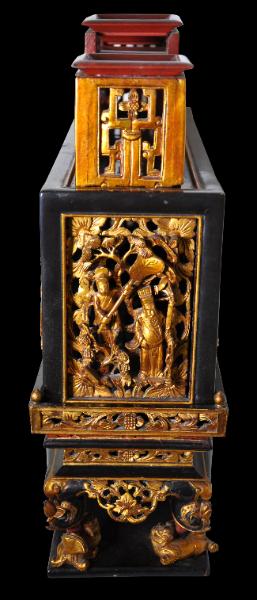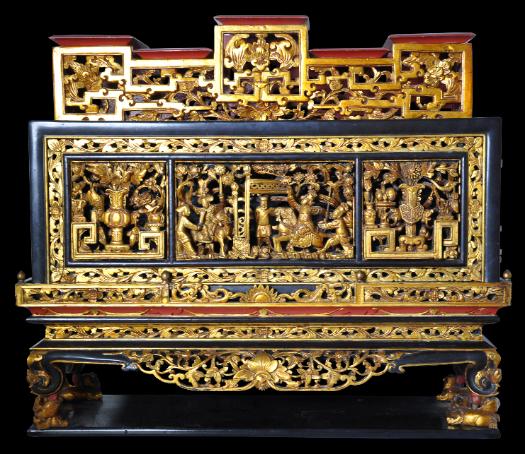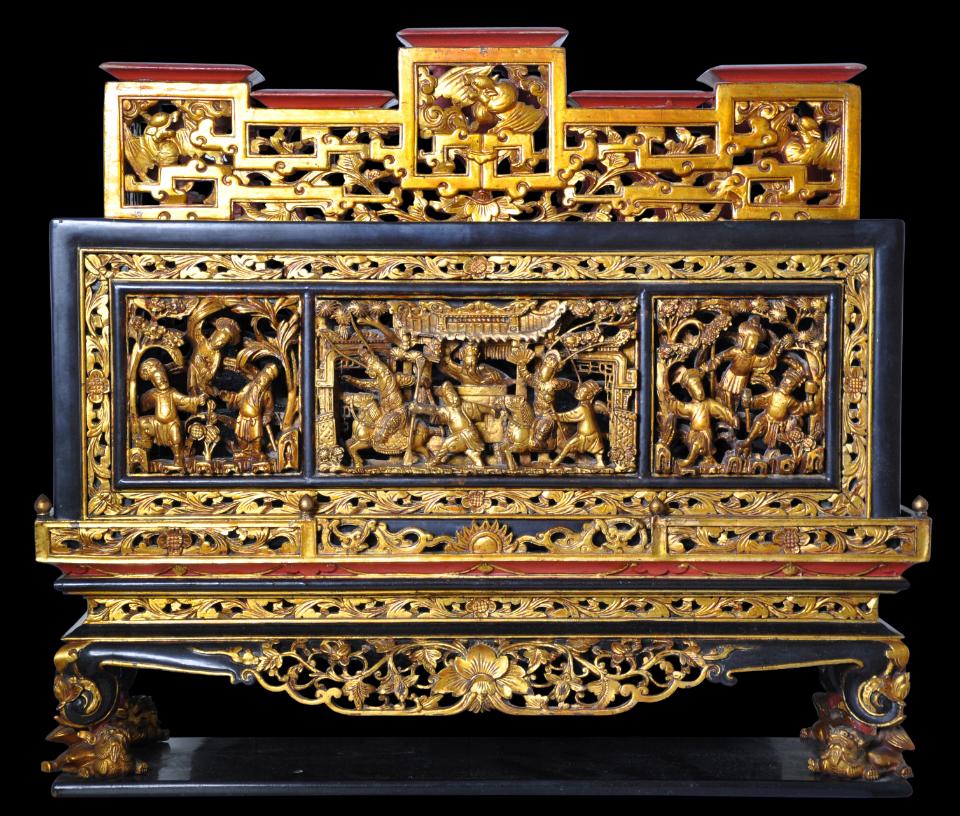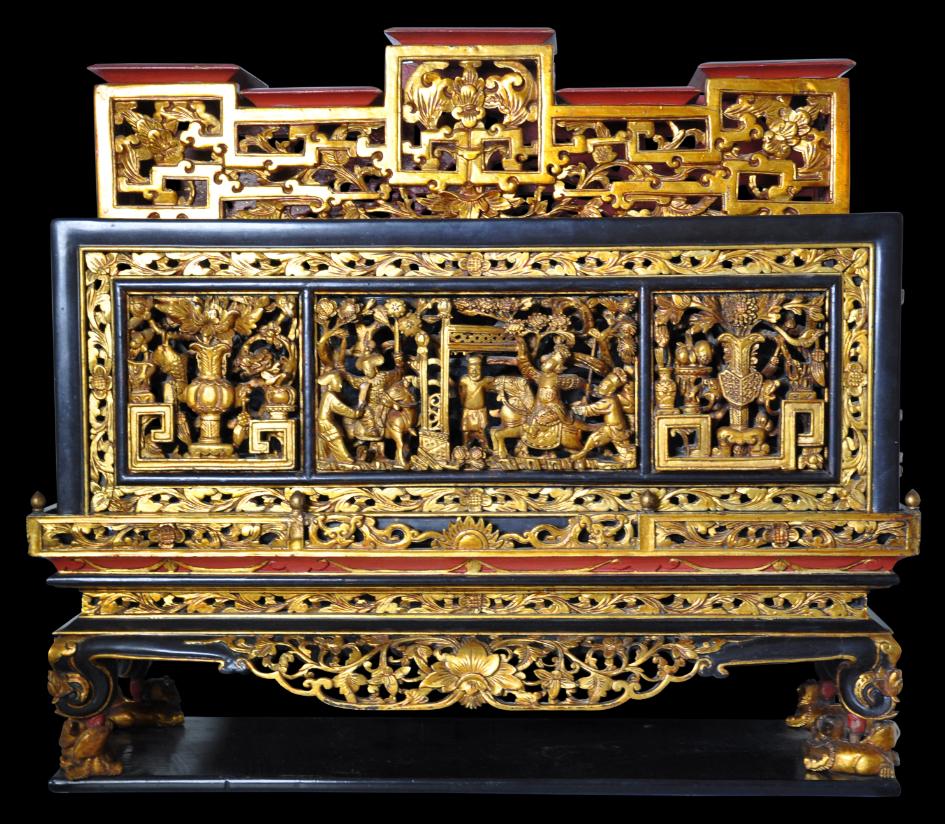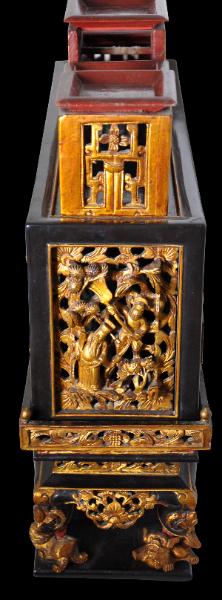
Straits Chinese Offering Box
Large & Exceptionally Fine Straits Chinese Gilt & Lacquer Offering Box (Beet-Chien or Chanab)
China for the Straits Settlements
late 19th century
height (when fully displayed): 36cm,
length: 43.5cm, width: 13cm
This is the finest and largest chanab that we have had. The carving is superb and unusually fine and detailed and without significant losses.
Gilded and lacquered altar offering platforms or
chanabs such as this fine example were carved in China (in northern Guangdong) and then used locally, as well as being exported to Chinese communities in Southeast Asia.
The
chanab was placed in the centre of each Straits Chinese family’s sam kai altar, the most important altar in the family home. The sam kai altar was used for important ceremonies, particularly weddings.
Called a
beet-chien in Penang and a chien-arb or chanab in Malacca and Singapore, offerings such as crystallised papaya were placed on top of the chanab as offerings for the God of Heaven.
This
chanab, executed in black and red lacquered and gilded pinewood, is intricately carved with elaborate, almost three-dimensional scenes from Chinese legends on both sides. The ends of the cover also are carved with gilded Chinese scenes.
The cover sits on a stand that is similarly carved and gilded and which has four feet, each of which sits on movable, splendidly carved Buddhistic lions.
The top of the cover is used for displaying the gilded offering platform and trays. There are six lacquered trays – all are present. Each is coloured cinnabar-red. The gilded offering platform is particularly delicate and unusually is carved with a series of bats amid foliage and blossoms.
When not in use, the offering platform and trays would have been stored inside the box.
The condition of this
chanab is excellent, particularly given its age and the materials used. There are no obvious losses to the elaborate carving. The gilding is fully intact and so is all the lacquerwork. Overall, this is the best chanab that we have seen in terms of its size, intricacy and condition.
References
Ho, W.M., Straits Chinese Furniture, Times, 1994.
Khoo J.E.,
The Straits Chinese: A Cultural History, Pepin Press, 1996.
Lee, P. and J. Chen,
Rumah Baba: Life in a Peranakan House, National Heritage Board, Singapore, 1998.
Tan, C.B.,
Chinese Peranakan Heritage in Malaysia and Singapore, Penerbit Fajar Bakti, 1993.
Provenance
UK art market
Inventory no.: 2369
SOLD

